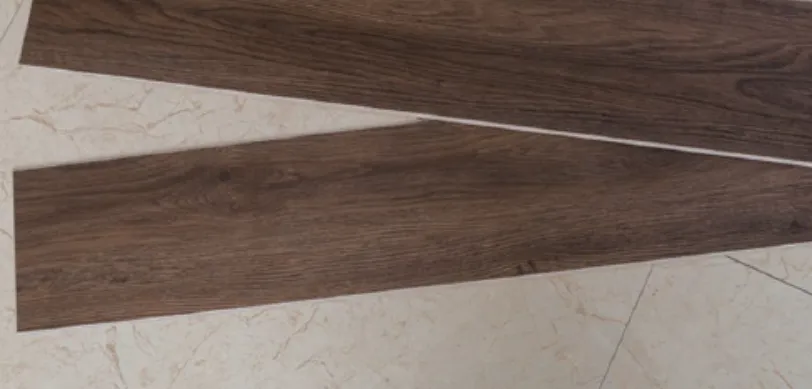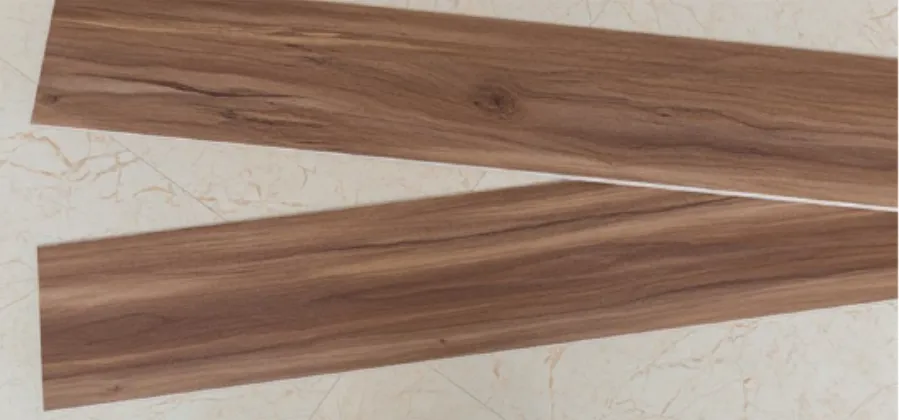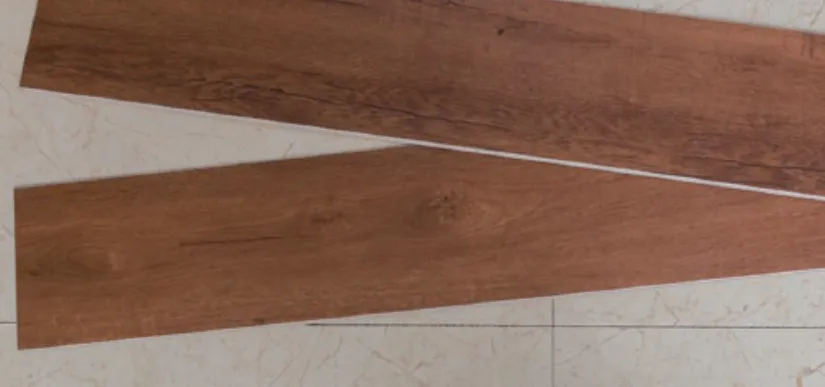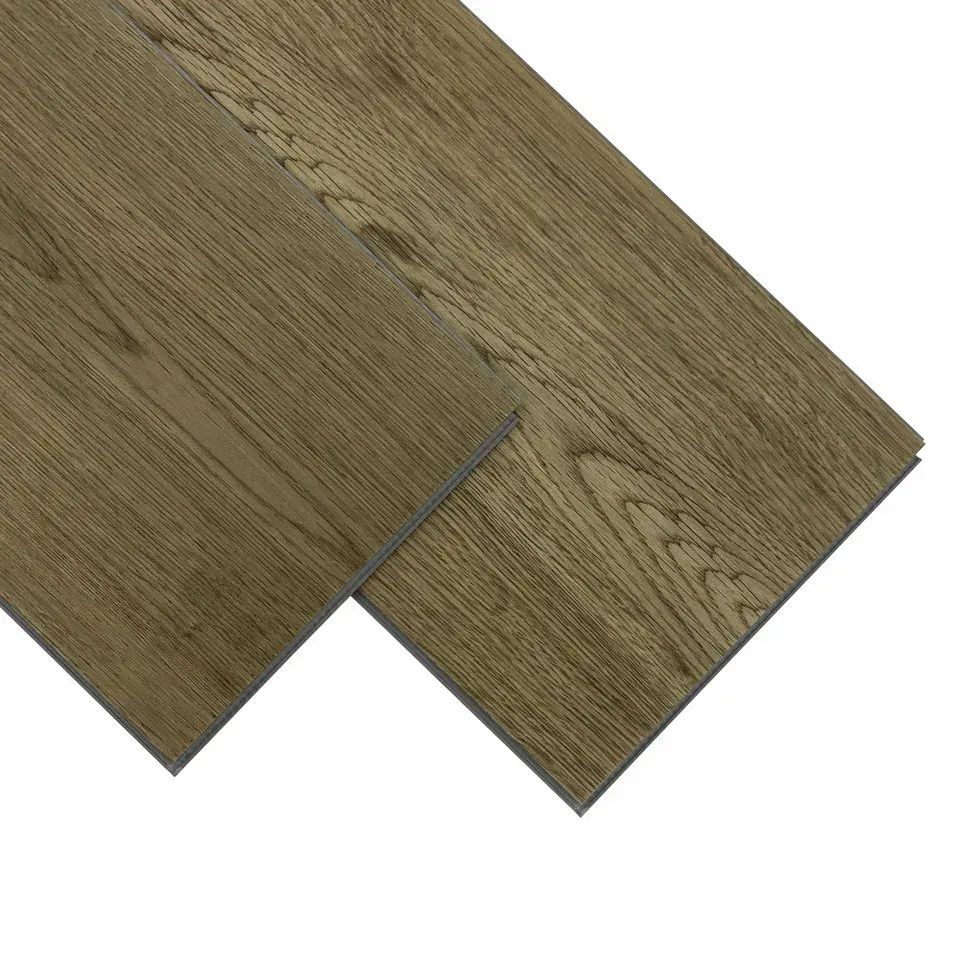SPC Vinyl Plank Flooring: Durable, Waterproof & Easy Install
Understanding the Evolution of Resilient Flooring: spc vinyl plank flooring
The flooring industry has witnessed significant innovations, particularly in the B2B sector, where durability, aesthetic appeal, and cost-effectiveness are paramount. Among these advancements, spc vinyl plank flooring has emerged as a transformative solution. SPC, or Stone Plastic Composite, represents the next generation of resilient flooring, distinguishing itself with an ultra-dense core that offers unparalleled stability and waterproof properties. This advanced construction makes it an ideal choice for high-traffic commercial environments, healthcare facilities, hospitality venues, and educational institutions where performance and longevity are critical.
Unlike traditional vinyl or even WPC (Wood Plastic Composite) alternatives, vinyl spc flooring features a rigid core made primarily from limestone powder and PVC stabilizers. This composition provides superior resistance to dents, scratches, and temperature fluctuations, effectively mitigating expansion and contraction issues common in less robust flooring types. The demand for robust, low-maintenance, and aesthetically versatile flooring solutions has driven the rapid adoption of SPC technology across diverse B2B applications, positioning it as a leading choice for modern infrastructure projects.

The Manufacturing Process: Crafting SPC Vinyl Plank Flooring with Precision
The production of luxury vinyl spc flooring is a sophisticated process that leverages advanced extrusion and calendering techniques to create a high-performance, multi-layered product. Understanding this process is key to appreciating the material's inherent strength and stability.
Core Material Composition:
The foundation of SPC flooring is its rigid core. This core typically comprises about 60-70% calcium carbonate (limestone powder), 20-30% polyvinyl chloride (PVC) resin, and a blend of stabilizers and lubricants. This high mineral content is responsible for the product's exceptional density and rigidity, differentiating it from flexible vinyl alternatives.
Manufacturing Steps (Schematic Flow):
- 1. Raw Material Mixing & Homogenization: Precise quantities of limestone powder, PVC resin, plasticizers, and stabilizers are mixed thoroughly in a high-speed mixer. This ensures a uniform composite mixture crucial for consistent product quality.
- 2. Extrusion & Calendering of SPC Core: The homogenized mixture is fed into an extruder where it is heated and melted. The molten material is then extruded through a die into a sheet, which undergoes a calendering process (passing through a series of heated rollers) to achieve the desired thickness and density for the rigid SPC core layer. This process ensures exceptional dimensional stability, a critical parameter for commercial installations.
- 3. Decorative Print Layer Application: A high-definition decorative film, often replicating natural wood or stone, is adhered to the SPC core. This is typically done through a hot-pressing or lamination process, ensuring a strong bond and vibrant visual appeal.
- 4. Wear Layer & UV Coating Application: A transparent wear layer, usually made of PVC, is applied over the print film. This layer, available in various thicknesses (e.g., 0.3mm to 0.7mm), provides crucial protection against abrasion, scratches, and general wear. A UV-cured coating is then applied to the top surface, offering additional resistance to fading, stains, and scuffs, and often determining the gloss level.
- 5. Curing, Cooling & Cutting: The multi-layered sheet is then passed through a curing oven and subsequently cooled. Precision cutting machinery sizes the large sheets into individual planks.
- 6. Profiling (Click-Lock System): Advanced CNC machining is used to precisely mill the edges of each plank, creating the interlocking click-lock system. This ensures easy and secure installation without the need for adhesives, reducing installation time and cost.
- 7. Quality Control & Packaging: Each plank undergoes rigorous testing for dimensional stability, wear resistance, indentation, and visual quality. Products are then packaged for shipment, meeting international standards like ISO 9001 for quality management.
This meticulous process ensures that the final spc vinyl plank flooring product delivers on its promise of durability, water resistance, and aesthetic excellence, making it a reliable choice for demanding commercial environments.

Technical Specifications and Performance Metrics for SPC Vinyl Plank Flooring
The technical superiority of spc vinyl plank flooring is underscored by its rigorous adherence to industry standards and impressive performance metrics. These specifications are crucial for B2B decision-makers assessing long-term value and operational suitability.
Key Product Specifications:
| Parameter | Typical Specification Range | Relevant Standard / Advantage |
|---|---|---|
| Total Thickness | 3.5mm - 6.0mm | Impact resistance, subfloor irregularity tolerance. |
| Wear Layer Thickness | 0.3mm - 0.7mm (12 - 28 mil) | Commercial durability rating (EN ISO 10582), abrasion resistance. |
| Density | 1900 kg/m³ - 2100 kg/m³ | Rigidity, indentation resistance, acoustic performance. |
| Dimensional Stability | ≤ 0.08% (after 6 hrs at 80°C) | ISO 23999; prevents gapping or buckling under temperature fluctuations. |
| Residual Indentation | ≤ 0.10 mm | ISO 24343-1; resistance to static loads (e.g., heavy furniture, equipment). |
| Slip Resistance | R9 - R10 (DIN 51130) | Safety for public and commercial spaces, especially when wet. |
| Fire Rating | Bfl-s1 (EN 13501-1) | Reduced flame spread and smoke production, critical for public buildings. |
| Waterproof Rating | 100% Waterproof Core | Prevents swelling, warping, and mold growth in wet environments. |
Testing Standards and Certifications:
Reputable manufacturers of spc vinyl plank flooring adhere to stringent international testing standards to ensure product quality and performance. These include:
- ISO 9001: Quality Management Systems.
- ISO 14001: Environmental Management Systems.
- EN 13501-1: Fire classification of construction products and building elements.
- EN ISO 23999: Determination of dimensional stability and curling after exposure to elevated temperature.
- EN ISO 24343-1: Determination of residual indentation after static loading.
- ASTM F1700: Standard Specification for Solid Vinyl Tile (SVT).
- CE Marking: Declaration of conformity with European health, safety, and environmental protection standards.
These certifications provide B2B clients with the assurance that they are investing in a product that meets global benchmarks for safety, environmental responsibility, and functional performance, ultimately reducing project risks and enhancing long-term satisfaction.
Application Scenarios and Technical Advantages of WPC SPC Vinyl Plank Flooring
The versatile nature and robust technical properties of wpc spc vinyl plank flooring make it suitable for a broad spectrum of commercial and industrial applications. Its unique composition delivers distinct advantages over traditional flooring options.
Target Industries and Typical Application Scenarios:
- Healthcare Facilities: Hospitals, clinics, nursing homes benefit from its hygienic properties, ease of cleaning, and water resistance, crucial for preventing pathogen growth. Its sound-absorbing qualities also contribute to a quieter healing environment.
- Retail & Commercial Spaces: High foot traffic areas, showrooms, and offices require extreme durability and aesthetic flexibility. SPC flooring resists scuffs, indentations, and maintains its appearance under constant use, contributing to a professional brand image.
- Hospitality (Hotels, Restaurants): Moisture-prone areas like kitchens, bathrooms, and lobbies benefit from its waterproof core. Its resistance to stains and easy maintenance make it ideal for environments requiring continuous cleanliness and aesthetic appeal.
- Educational Institutions: Schools and universities demand robust flooring that can withstand heavy traffic and spills. SPC offers longevity, easy maintenance, and contributes to better indoor air quality due to low VOC emissions.
- Multi-Family Housing & Property Management: Quick installation, low maintenance, and excellent durability minimize turnover costs and enhance tenant satisfaction. Its sound-dampening properties are also a significant advantage.
Technical Advantages:
- 100% Waterproof: The rigid SPC core is impervious to water, making it ideal for environments where moisture is a concern, such as bathrooms, kitchens, and basements in commercial settings. This prevents swelling, warping, and potential mold growth, reducing long-term maintenance costs and health risks.
- Exceptional Durability & Impact Resistance: Thanks to its high-density core, SPC flooring offers superior resistance to dents, impacts, and heavy loads. This translates to a longer service life, particularly in high-traffic commercial areas, minimizing the need for frequent replacement and lowering lifecycle costs.
- Superior Dimensional Stability: Unlike many other flooring types, SPC is highly resistant to expansion and contraction caused by temperature fluctuations. This stability ensures that planks remain tightly interlocked, preventing gapping and buckling, and allowing for installation in diverse climates without acclimation.
- Easy Installation (Click-Lock System): The precision-engineered click-lock mechanism allows for floating installation without adhesives, significantly reducing installation time and labor costs. This is particularly beneficial for large-scale commercial projects with tight deadlines.
- Low Maintenance: The robust wear layer and waterproof surface make SPC flooring incredibly easy to clean and maintain. Simple sweeping and occasional damp mopping are sufficient, reducing operational expenses for cleaning services.
- Enhanced Acoustic Performance: Many SPC products feature an attached underlayment, or can be combined with one, to improve sound absorption, reducing impact noise and creating a quieter environment, which is highly valued in multi-story commercial buildings and educational facilities.
- Eco-Friendly Composition: Utilizing limestone powder, a naturally abundant resource, and often produced with low VOC emissions, SPC flooring contributes to healthier indoor air quality and sustainable building practices, appealing to environmentally conscious organizations.

Vendor Comparison and Customized Solutions for SPC Vinyl Plank Flooring
Selecting the right vendor for installing spc vinyl plank flooring is as critical as choosing the product itself. Factors such as manufacturing capability, quality assurance, customization options, and after-sales support significantly influence project success.
SPC vs. WPC Vinyl Plank Flooring: A Technical Comparison
| Feature | SPC Vinyl Plank Flooring | WPC Vinyl Plank Flooring |
|---|---|---|
| Core Composition | Stone Plastic Composite (limestone powder + PVC) | Wood Plastic Composite (wood flour + PVC) |
| Core Density | Very High (1900-2100 kg/m³) | Moderate (900-1050 kg/m³) |
| Rigidity | Extremely Rigid | Rigid, but more flexible than SPC |
| Dimensional Stability | Excellent; highly resistant to temperature changes. | Very good; less resistant than SPC to extreme temperature swings. |
| Impact & Dent Resistance | Superior; very resistant to heavy impacts and indentations. | Good; more prone to dents than SPC due to lower density. |
| Comfort & Sound | Firmer underfoot; good sound dampening with attached pad. | Softer, warmer underfoot; excellent sound dampening. |
| Subfloor Imperfection Tolerance | Good; rigid core helps bridge minor imperfections. | Better; thicker, lighter core conceals more subfloor flaws. |
| Cost (Typical) | Moderate to High (Excellent value for performance) | High (Premium product due to thicker core) |
Customized Solutions for B2B Clients:
Leading SPC flooring manufacturers recognize the diverse needs of B2B projects and offer extensive customization options:
- Design & Aesthetics: Custom print layers to match specific brand guidelines, architectural themes, or unique visual requirements. This includes replicating exotic wood species, natural stone patterns, or abstract designs.
- Wear Layer Thickness: Tailoring the wear layer from 0.3mm to 0.7mm to precisely match the expected traffic intensity and desired service life of the installation area.
- Integrated Underlayment: Factory-attached IXPE or EVA underlayments to enhance acoustic performance, provide added comfort underfoot, and reduce installation steps.
- Plank Dimensions: Custom plank widths and lengths to accommodate specific room dimensions or design layouts, minimizing waste and optimizing visual flow.
- Specialty Coatings: Options for enhanced slip resistance (e.g., higher R-ratings), anti-microbial treatments for healthcare settings, or specific finishes (matte, semi-gloss) to meet functional and aesthetic demands.
- Proprietary Locking Systems: Manufacturers may offer different types of click-lock profiles optimized for specific ease of installation, subfloor conditions, or long-term joint integrity.

Application Case Studies & Service Commitments for SPC Vinyl Plank Flooring
The practical deployment of spc vinyl plank flooring across various sectors demonstrates its tangible benefits and operational efficiency for B2B clients.
Illustrative Application Case Studies:
-
1. High-Traffic Corporate Office Renovation:
A major tech firm renovated its 50,000 sq ft headquarters, requiring flooring that could withstand constant foot traffic, office chair casters, and occasional spills. They opted for 5.0mm SPC with a 0.5mm wear layer. The rapid click-lock installation minimized downtime, allowing business continuity. Post-installation feedback highlighted its superior resistance to indentation from heavy equipment and ease of cleaning, significantly reducing maintenance labor compared to previous carpet tiles.
-
2. University Dormitory Modernization:
A university upgraded its student dormitories, seeking durable, waterproof, and aesthetically pleasing flooring. SPC vinyl plank flooring with an integrated acoustic underlayment was chosen for 800 rooms and common areas. The waterproof nature mitigated concerns about spills in student living spaces, while the rigidity ensured stability over varying subfloor conditions. The acoustic properties reduced noise transfer between floors, improving living quality.
-
3. Restaurant & Kitchen Installation:
A new restaurant chain required robust, slip-resistant, and hygienic flooring for its dining areas and semi-commercial kitchens. 4.0mm SPC with an R10 slip rating was installed. Its 100% waterproof core was critical for managing spills and rigorous cleaning protocols. The anti-microbial treatment (optional) and ease of sanitization provided an important health and safety advantage, surpassing local food service regulations.
FAQ Module: Common Inquiries about SPC Flooring
- Q: Is SPC flooring suitable for radiant heating systems?
- A: Yes, SPC flooring is generally suitable for radiant heating systems due to its excellent dimensional stability. However, it is crucial to follow manufacturer guidelines regarding subfloor temperature limits and installation procedures to prevent issues like thermal shock.
- Q: How does SPC flooring impact indoor air quality?
- A: High-quality SPC flooring often features low VOC (Volatile Organic Compound) emissions, contributing to superior indoor air quality. Look for products certified by programs like FloorScore or similar standards to ensure compliance with stringent indoor air quality requirements.
- Q: Can SPC be installed over existing hard-surface flooring?
- A: In many cases, yes. The rigid core of SPC flooring allows it to be installed over existing hard, flat, and dry subfloors (e.g., tile, concrete, plywood) without extensive preparation. However, the existing subfloor must be structurally sound and free of significant imperfections to ensure optimal performance and warranty validity.
Lead Time, Warranty & After-Sales Support:
Reliable B2B partnerships hinge on transparent service commitments:
- Lead Time/Fulfillment: Standard orders typically have a lead time of 2-4 weeks, depending on volume and customization. Expedited shipping options and warehousing solutions are often available for large-scale projects or just-in-time delivery requirements.
- Warranty Commitments: Reputable manufacturers provide robust warranties, typically 10-25 years for commercial applications, covering manufacturing defects, wear-through, and structural integrity under normal use. Specific terms vary by wear layer thickness and product line.
- Customer Support: Dedicated B2B client managers offer technical assistance, specification guidance, installation training, and post-installation support. A comprehensive after-sales service includes troubleshooting, claims processing, and maintenance recommendations to maximize product longevity.

Conclusion: The Future-Proof Solution for Commercial Flooring
In the rapidly evolving landscape of B2B construction and renovation, spc vinyl plank flooring stands out as a superior, future-proof solution. Its unique rigid core construction, combined with advancements in aesthetic design and manufacturing precision, delivers an unparalleled balance of durability, water resistance, dimensional stability, and ease of maintenance. For decision-makers in sectors ranging from healthcare to hospitality, and corporate to education, SPC flooring offers a compelling value proposition: a long-term investment that reduces operational costs, enhances safety, and maintains aesthetic appeal under the most demanding conditions. By leveraging advanced technical specifications and robust service commitments, SPC flooring empowers businesses to build resilient, functional, and visually appealing environments that truly perform.
References:
- International Organization for Standardization (ISO). ISO 9001:2015 Quality management systems – Requirements.
- European Committee for Standardization (CEN). EN 13501-1: Fire classification of construction products and building elements - Part 1: Classification using data from reaction to fire tests.
- ASTM International. ASTM F1700 - 18 Standard Specification for Solid Vinyl Tile.
- The Resilient Floor Covering Institute (RFCI). Recommended Work Practices for the Removal of Resilient Floor Coverings.
- BuildingGreen. Product Guide: Rigid Core Luxury Vinyl Tile (LVT) and Plank (LVP).
-
Masking Tape: Clean Removal, Precision Lines, Pro-GradeNov.10,2025
-
Skirting: MDF, Oak & SPC | Durable, Easy-FitNov.10,2025
-
Commercial VCT Tile Flooring – Durable, Low-MaintenanceNov.10,2025
-
LVT Vinyl Floors – Waterproof, Scratch‑Resistant, Easy ClickNov.10,2025
-
Masking Tape - Pro-Grade, Clean Removal, Crisp LinesNov.10,2025
-
Premium Masking Tape - Sharp Lines, Clean RemovalNov.10,2025




